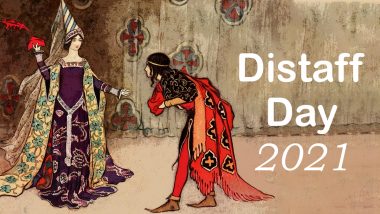Distaff Day, also called Roc Day or Rock Day is observed on January 7. The observance falls on the day after the feast of the Epiphany. It is the day when spinners go back to work after the holidays. Most of what we know about Saint Distaff’s Day comes from a poem called 'Saint Distaff’s Day', or the 'Morrow After Twelfth Day', by Robert Herrick from his 1648 book Hesperides. It is also known as Saint Distaff's Day. All Saint's Day 2020 Date And Significance: Know The History And Events Related to the Christian Observance That Honours Saints And Martyrs.
The first Monday after Epiphany is known as Plough Monday, which was traditionally the day when agricultural workers, mostly male, returned to work after the Christmas festivities. In England, St. Distaff's Day marked women's return to work after the Christmas holiday. Before the invention of factory-made cloth, spinning was representative of female chores which were done by women of all income, ranks and ages.
There is no saint named Distaff and the name refers to one of the principal tools women used in spinning. It is a rod upon which flax or wool was tied out of which thread was pulled. This tool was also known as a 'rock', hence the day was also known as 'Rock Day'.
Although English custom encouraged women to return to work, men had to come back only by Plough Monday. This inequality became the subject of many Distaff Day customs. While women returned to work, custom encourages men to tease women setting their flax or wool on fire. And in return, women put buckets of water on men. Also, very little work is actually accomplished on St. Distaff's Day due to these customs and traditions.
(The above story first appeared on LatestLY on Jan 07, 2021 08:02 AM IST. For more news and updates on politics, world, sports, entertainment and lifestyle, log on to our website latestly.com).













 Quickly
Quickly




















